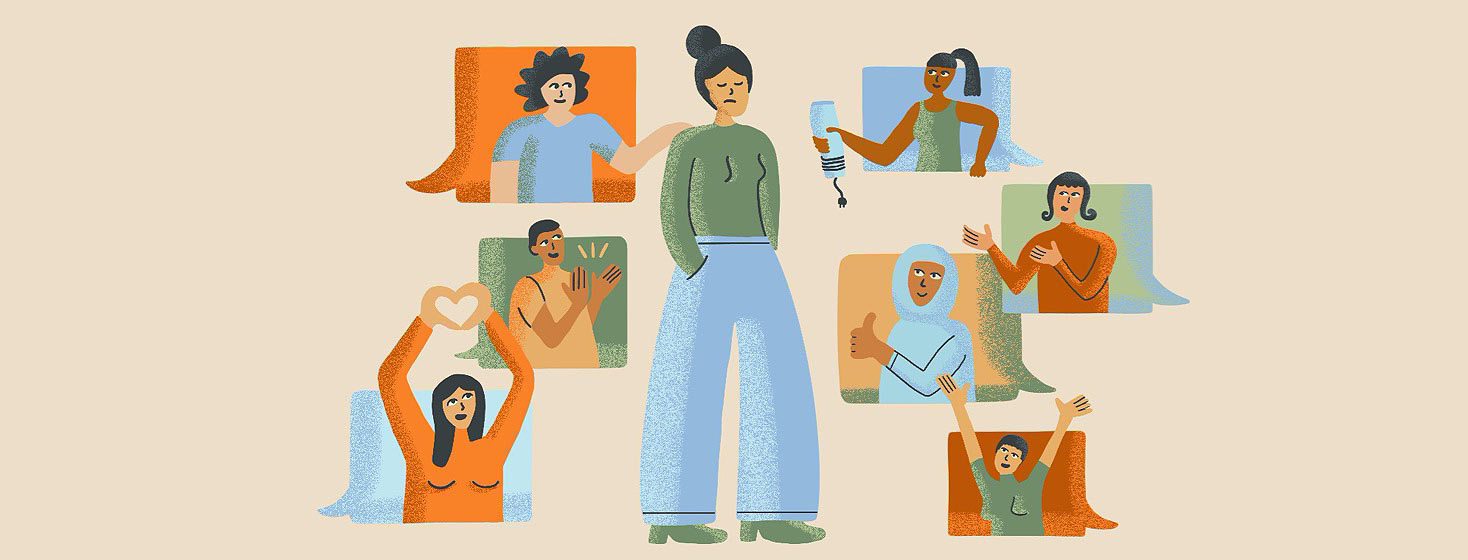Advice for Those Newly Diagnosed with Endometriosis
For many women, one of the biggest challenges of endometriosis is the often long, complicated journey to finally finding a name for their collective symptoms. Once you do finally find out that you have endo, you may be wondering, “Now what?”
Know you are not alone in wondering what comes next. We reached out to followers of our Facebook page to ask our community to share their tips about the journey that is endo. We asked them to weigh in: “What advice do you have for someone recently diagnosed with endometriosis?”
Nearly 50 women weighed in. Here is what was shared.
Do not push yourself
Most women living with endo experience painful periods. It can be especially important to take it easy during your period. This can look like naps, not working overtime, taking on fewer commitments, and honoring your body’s needs during your period and beyond.
“Do not push yourself too hard, and on the really painful days, relax and remember to take care of yourself.”
“Know when to take it easy. I cannot stress how many times I knew I had to take it easy but kept going no matter what.”
Do not be afraid to switch doctors
One of the hardest parts of endometriosis is that, for most women, it takes years to be diagnosed. Many doctors do not recognize the symptoms, and not every doctor is knowledgeable about treatment, either. If you feel like you are not being heard or that visiting the doctor does not lead to feeling better, it may be time to start researching which other doctors might be a fit.
“If you do not feel like your current doctor is really working to help you, find another one.”
Set yourself up with creature comforts
Painful periods, as well as additional cramping even when it is not your period, are often part of what it means to have endometriosis. Heat can help alleviate cramps. Hot baths work, as can a heating pad. A few community members also recommended a transcutaneous electrical nerve stimulation (TENS) device, which is a unit that provides small electrical currents to the body that help some women experience less pain.
“Hot baths, warm socks, soft blankets, and a heat pack will all be your best friend.”
“Keep a heating pad, TENS unit, and raspberry leaf tea handy.”
Do your own research
In general, endometriosis is a diagnosis that is largely misunderstood. Surgery can help by removing the affected tissue. Birth control can also help. Alternately, there are additional ways to treat endometriosis, including Eastern and alternative medicines. Changing one’s diet also helps some women. Moreover, because every woman’s body is different, what works to cure 1 woman’s endo may not work for another, which is why doing your own research can be especially beneficial.
“Research and then research more. Do not just accept what doctors tell you without finding out more info when it comes to ‘treatment.’ Never be afraid to tell them the treatment you want, and push until you get that treatment. It is your body, and you should try the treatments that you have looked into and want. I wish I would have learned that about 20 years ago.”
“It is so important to do your own research and read up on the disease, treatments, and drugs. You are your own advocate. Do not be afraid to bring a list of questions to ask your doctor.”
“Educate yourself as much as possible, and learn to be your own advocate.”
Speak up and find support in friends and groups
Many do not speak up about having endo, but they find that once they do, they are not alone. Roughly 10 to 20 percent of women in America have endometriosis.1 Keep in mind that this number reflects only the diagnosed and reported cases – which means there are countless more women with endometriosis symptoms but no diagnosis.1
The point is: Many women understand the struggle that is endo. If you have 10 female friends or coworkers, at least 1 of them likely understands what you are going through. Connections can also be found online in communities such as Endometriosis.net.
“Know that you are so brave and that there are so many women around you in the community with the same disease. Look for groups to be a part of.”
“This is a road that is not easy. It is physically and mentally draining, but you are never alone. There are groups out here with amazing women who can relate.”
Thank you to everyone who offered suggestions. We hope that by sharing your experiences, others feel encouraged and supported.

Join the conversation